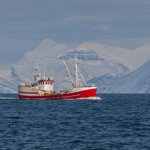Kinabalu Lestari prepares for first harvest at Malaysia’s first commercial RAS barramundi farm

Kinabalu Lestari, the operator of Malaysia’s first commercial recirculating aquaculture system (RAS), is expecting to begin harvesting its first crop of barramundi within months.
The company, a joint venture of Borneo Lestari and Sawit Kinabalu, received MYR 85 million (USD 18 million, EUR 17 million) in funding from Sabah state government when it launched in 2021. It has since built a functional RAS in Langkon, Kota Marudu, Malaysia, and placed its first fingerlings in its system in June 2023. Kinabalu Lestari General Manager Irwin Wong told the Daily Express Malasia that the fish are growing well and on track for a six-month turnaround to harvest.
“The total culture time is about six months, faster than normal culture,” Irwin said. “We know that even though the RAS system is a little bit more expensive and a little bit more technologically advanced and more complicated, it has a lot of benefits in the sense that it takes the uncertainty out of aquaculture.”
Irwin said the project is using 20-foot shipping containers for its system and can run on solar energy, and through parent company Sawit Kinabalu, which specializes in aqriculture and specifically palm oil and palm kernels, Irwin said it is developing a sustainable aquafeed. The company’s goal is to create a “breakthrough in recirculating aquaculture system that could be mobilized anywhere in the world, in Sabah itself, or in Borneo,” according to Irwin.
“It is a very efficient system,” he said. “We are very confident, upon scaling up the system we are going to achieve zero carbon footprint aquaculture, that is the second long term aim that we plan to achieve,” Irwin said.
Irwin confirmed Kinabalu Lestari has three additional planned growth phases, with the eventual goal of reaching 1,000 to 1,500 metric tons of production annually. But he said the company would proceed cautiously to avoid taking on too much debt.
Irwin said the company chose to farm barramundi because of its resiliency in a wide variety of growing conditions, and its marketability.
“[Barramundi] by nature is a white-fleshed fish preferred by the international market, it has got very huge followings in markets like Australia and New Zealand for fish and chips, for fish steaks, and even for grilled fish,” he said. “A second thing about [barramundi] is it has got a very suitable feed-conversion ratio.”
Kinabalu Lestari has twin goals of spurring local economic activity and creating a new domestic food source. He said the company is well on its way to achieving both goals.
“In Sabah, we … suffer from the red tide phenomenon almost every other alternate year and this has devastated a lot of aquaculture operations, especially in the west coast of the state,” he said. “By having this system, it takes the uncertainty out of aquaculture. We aim to make aquaculture risk-free [and] we want to encourage entrepreneurs who are interested in aquaculture systems to take a serious look at RAS and this system is designed and implemented by us – designed by Sabahans, built by Sabahans for the Sabah market.”
Photo courtesy of Sawit Kinabulu






Share